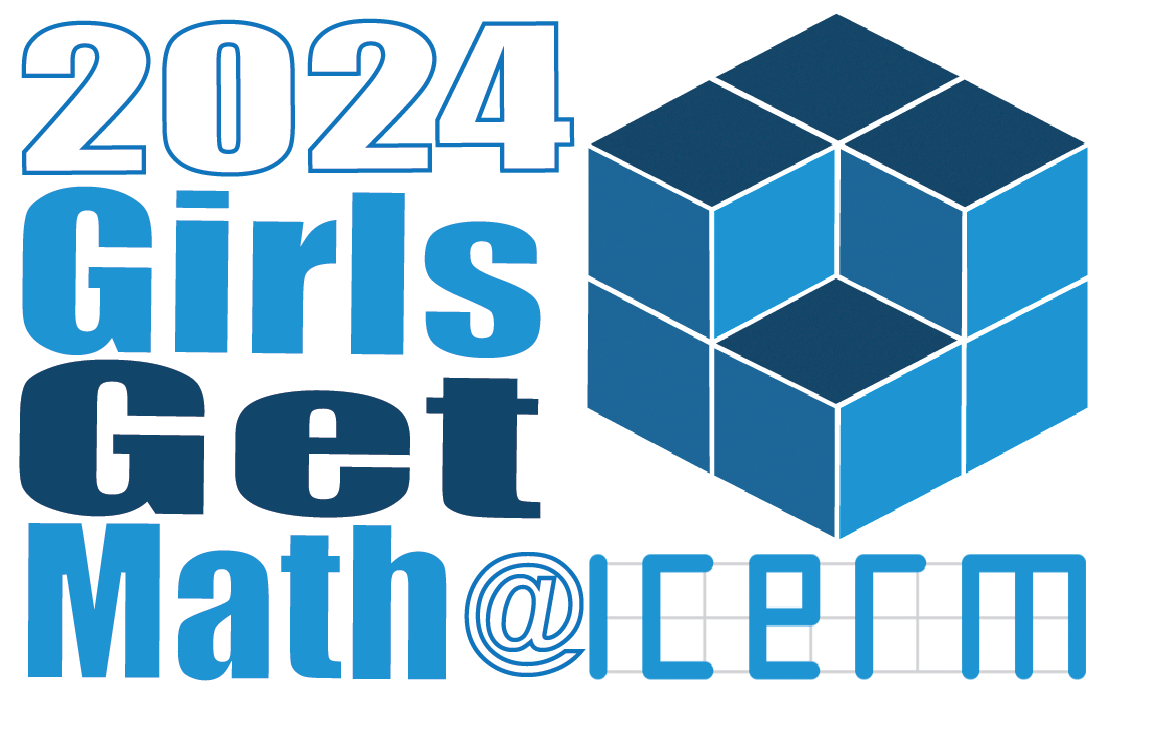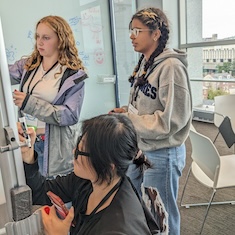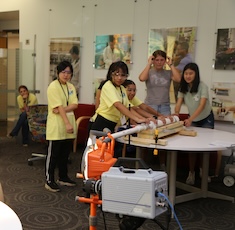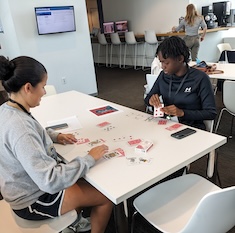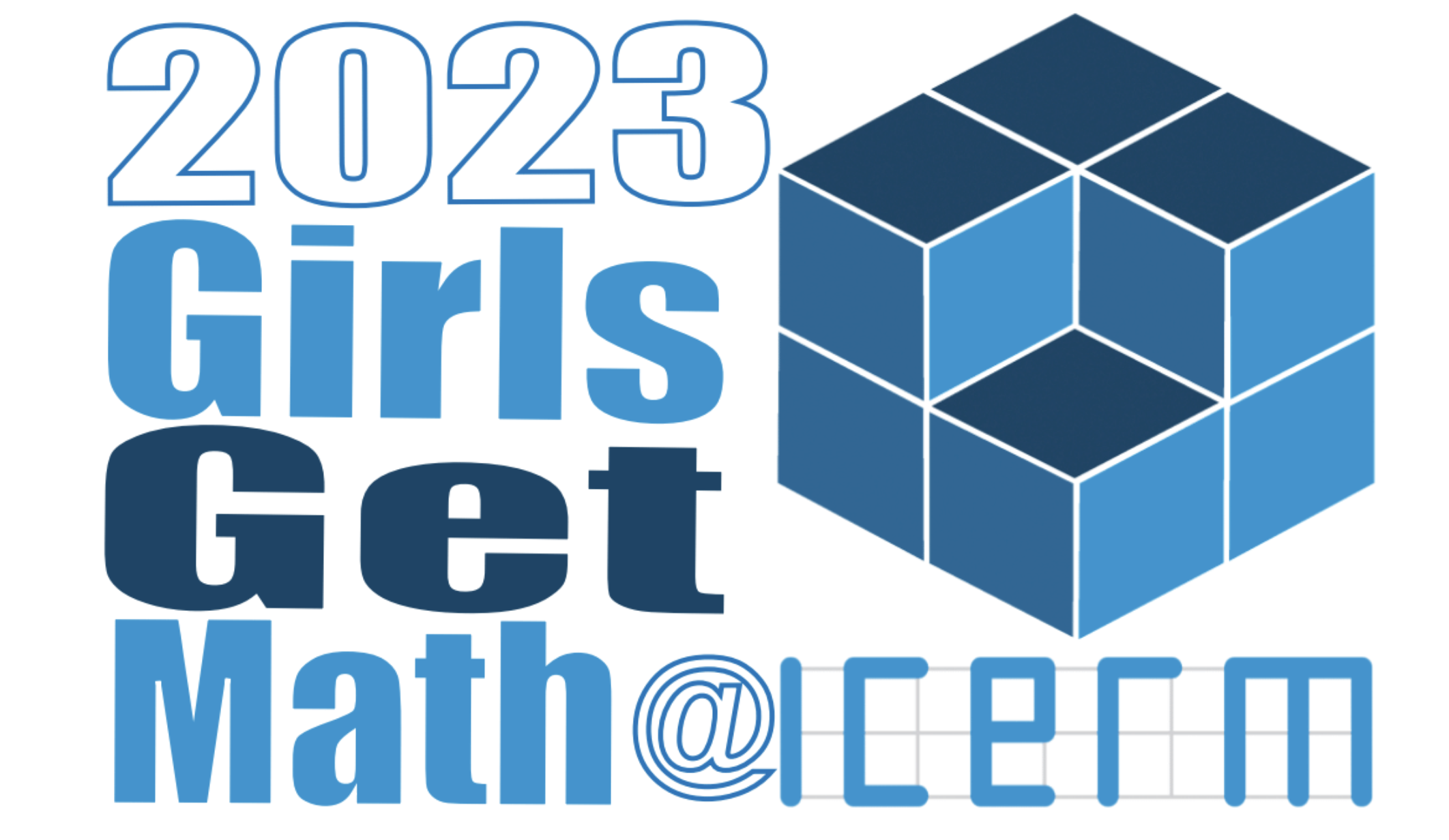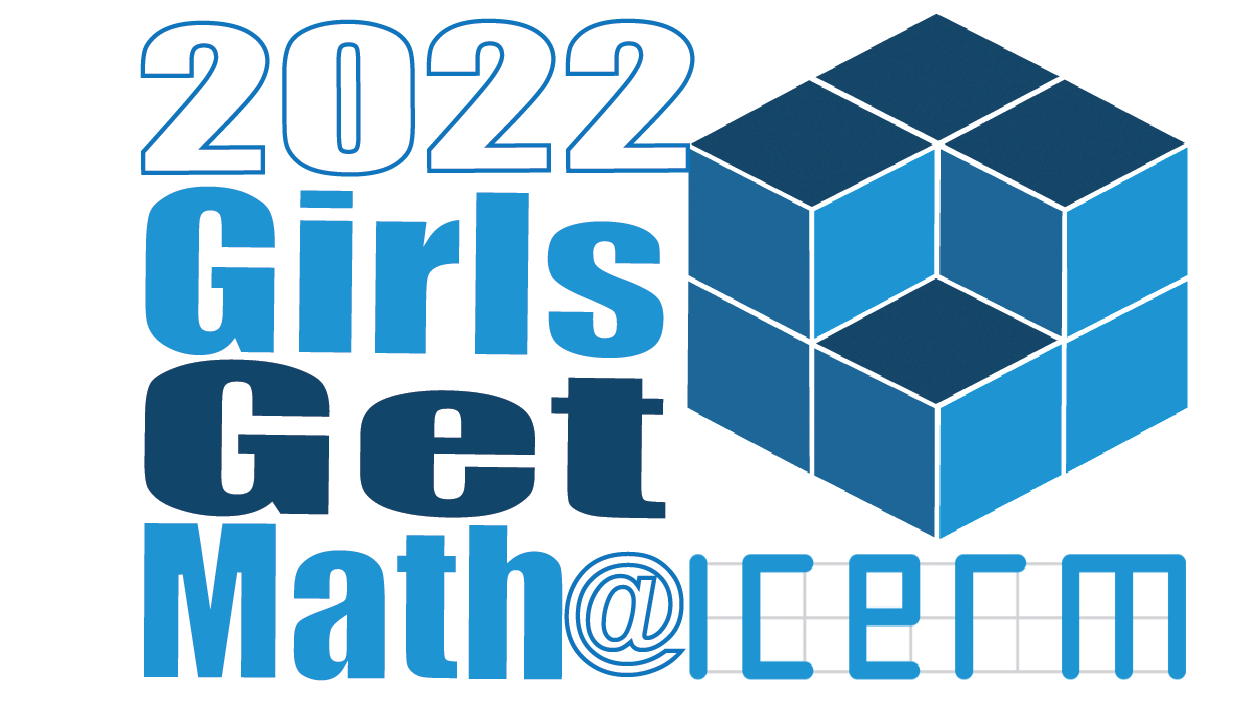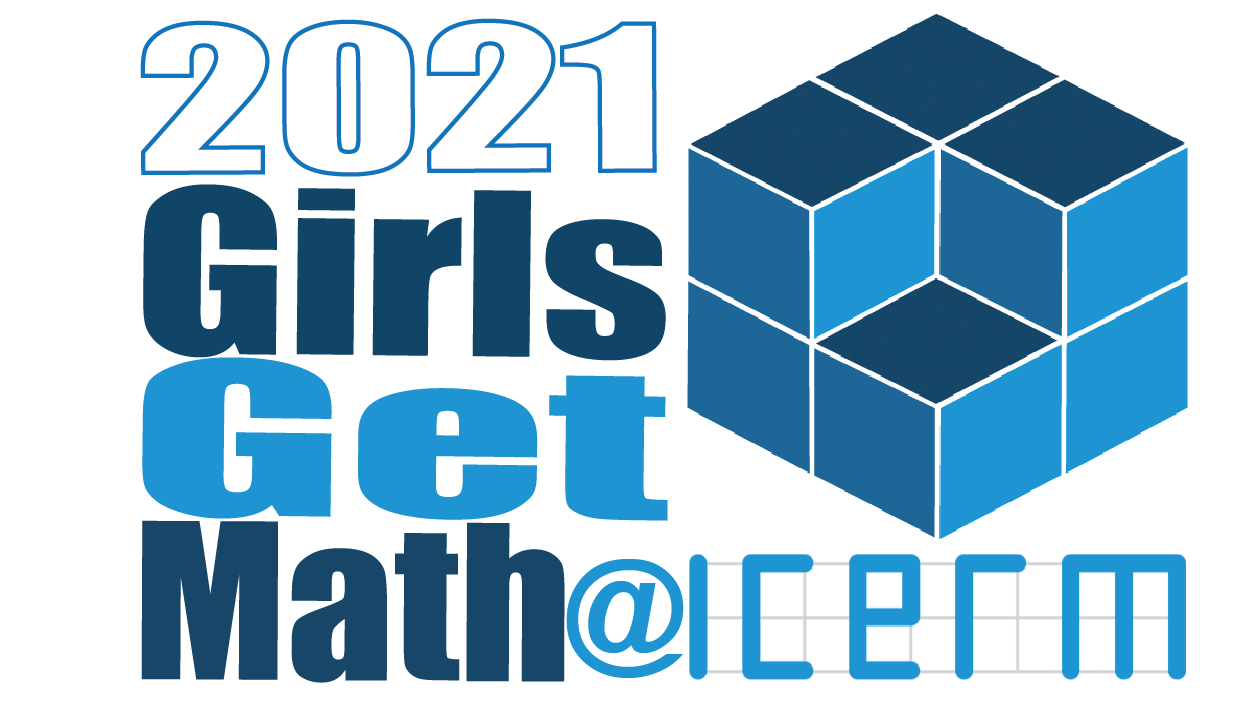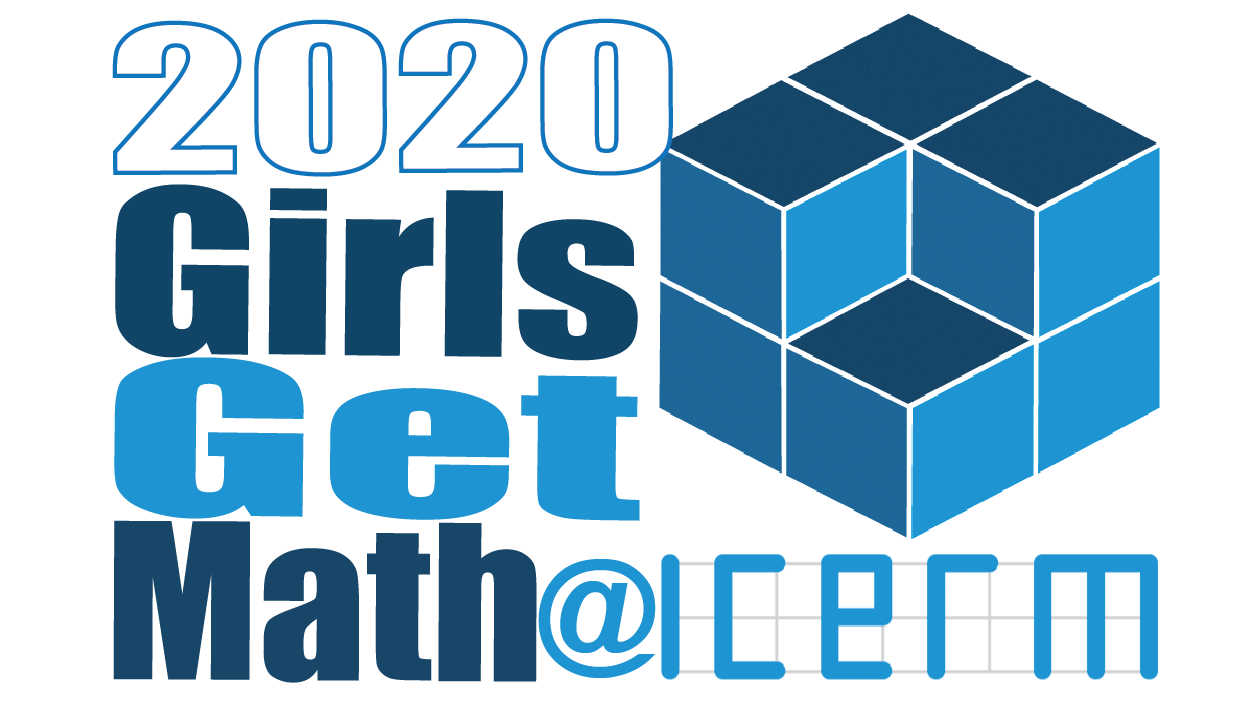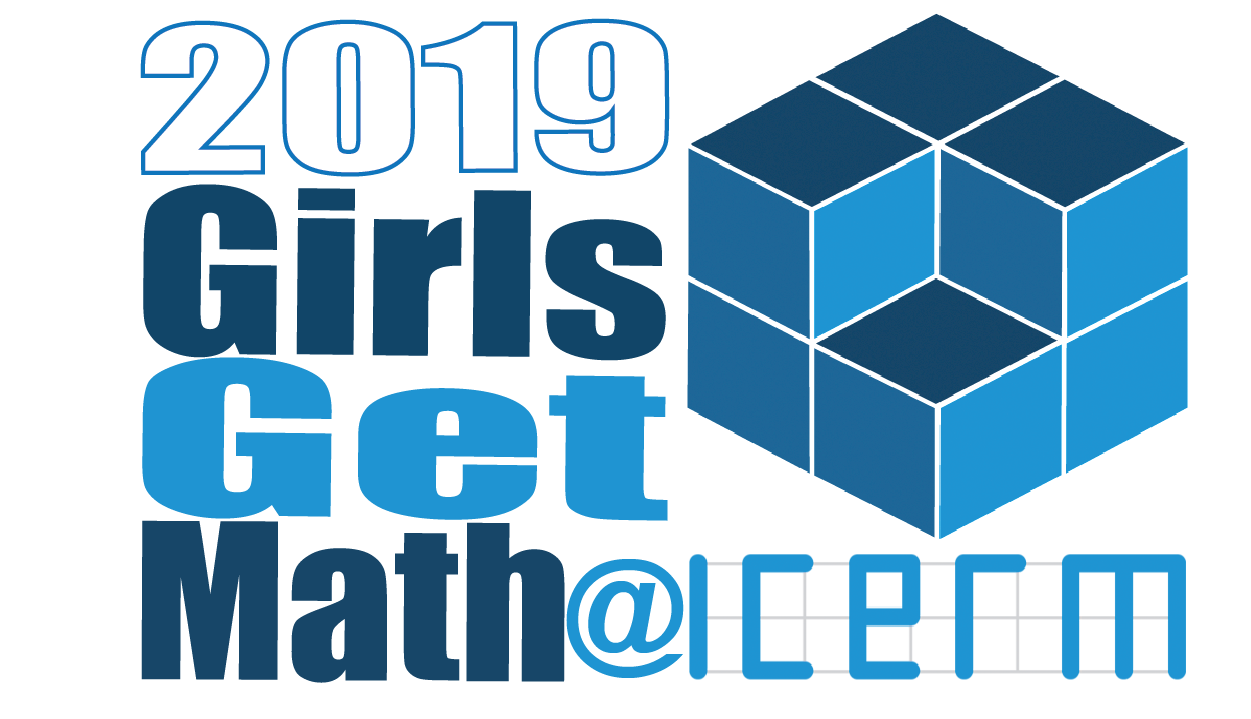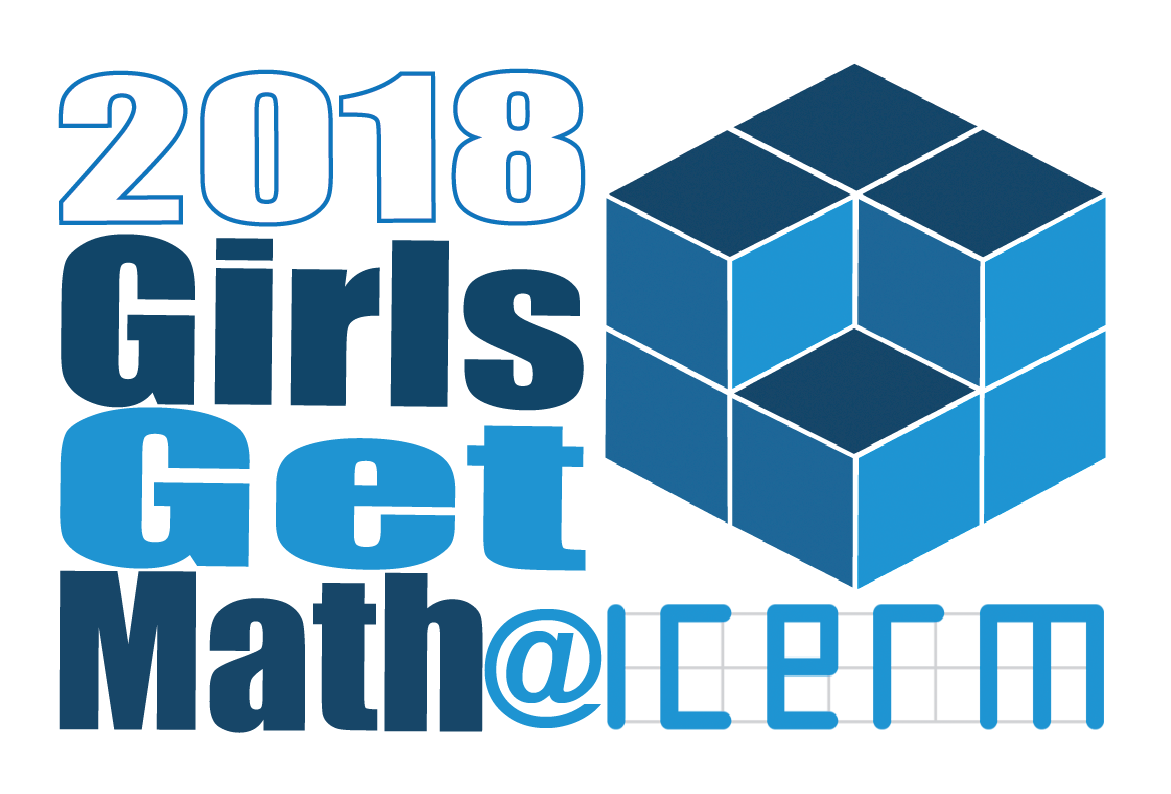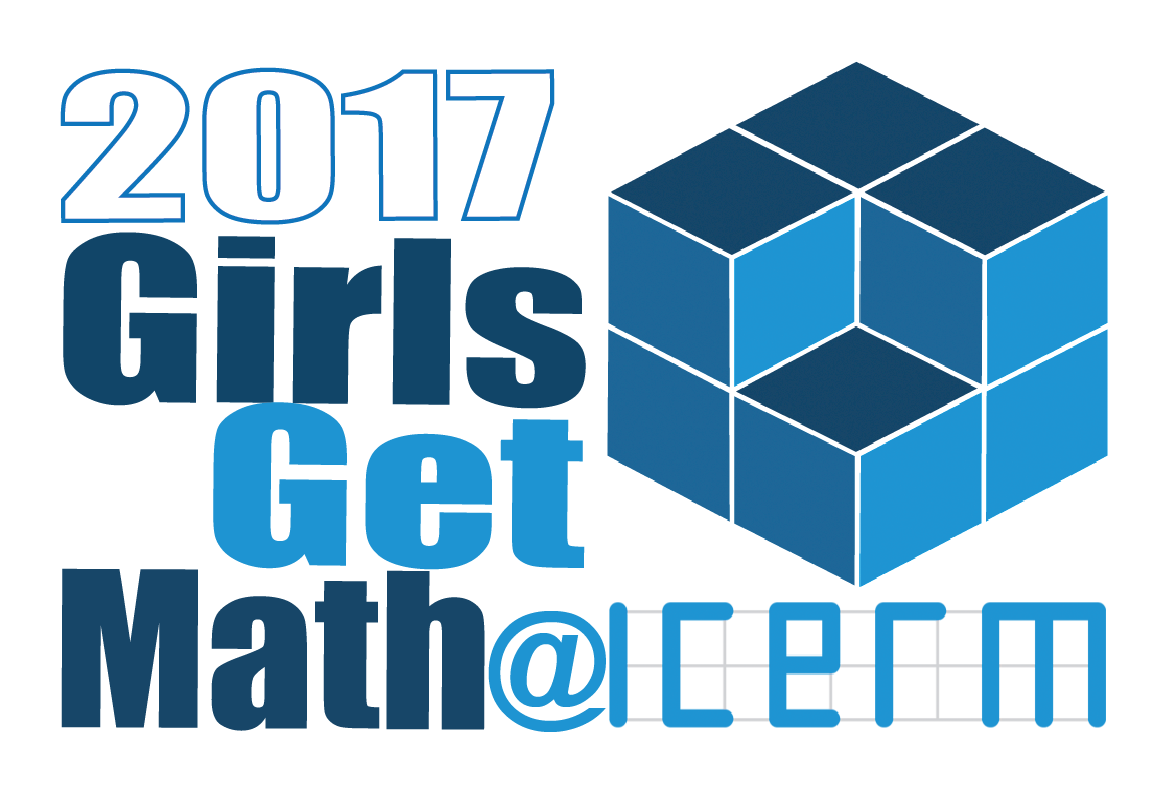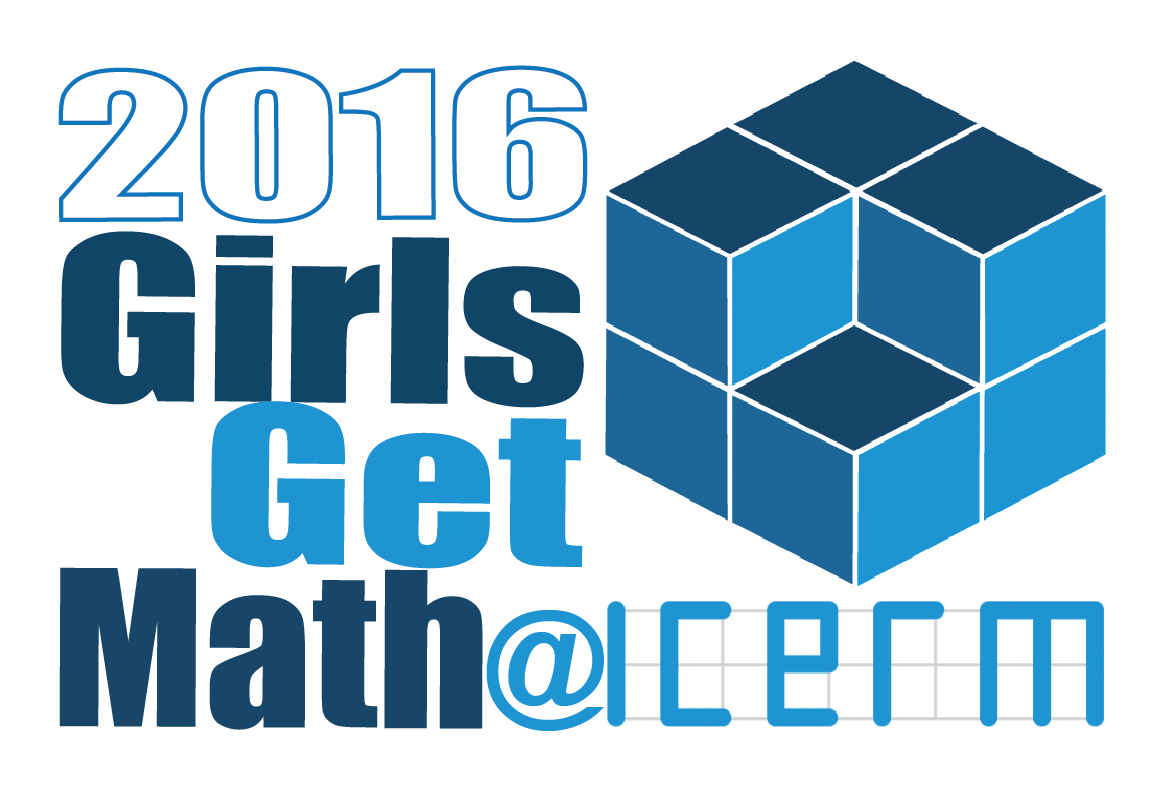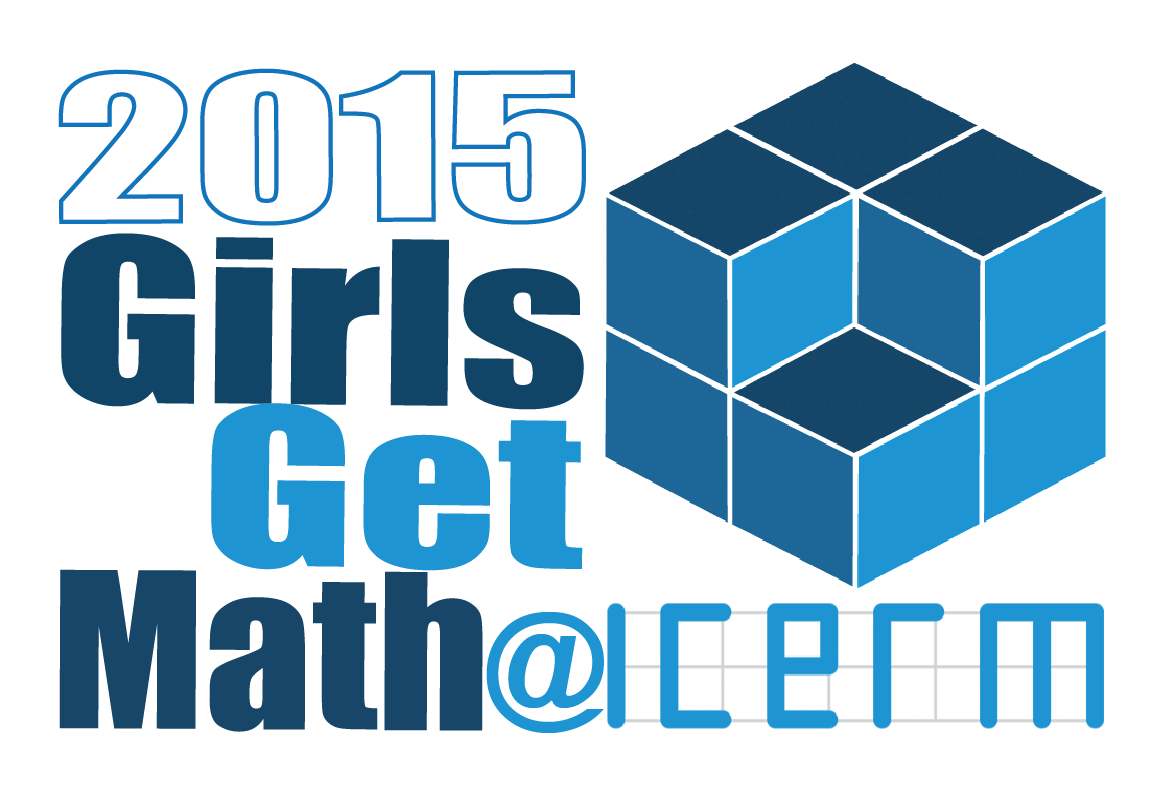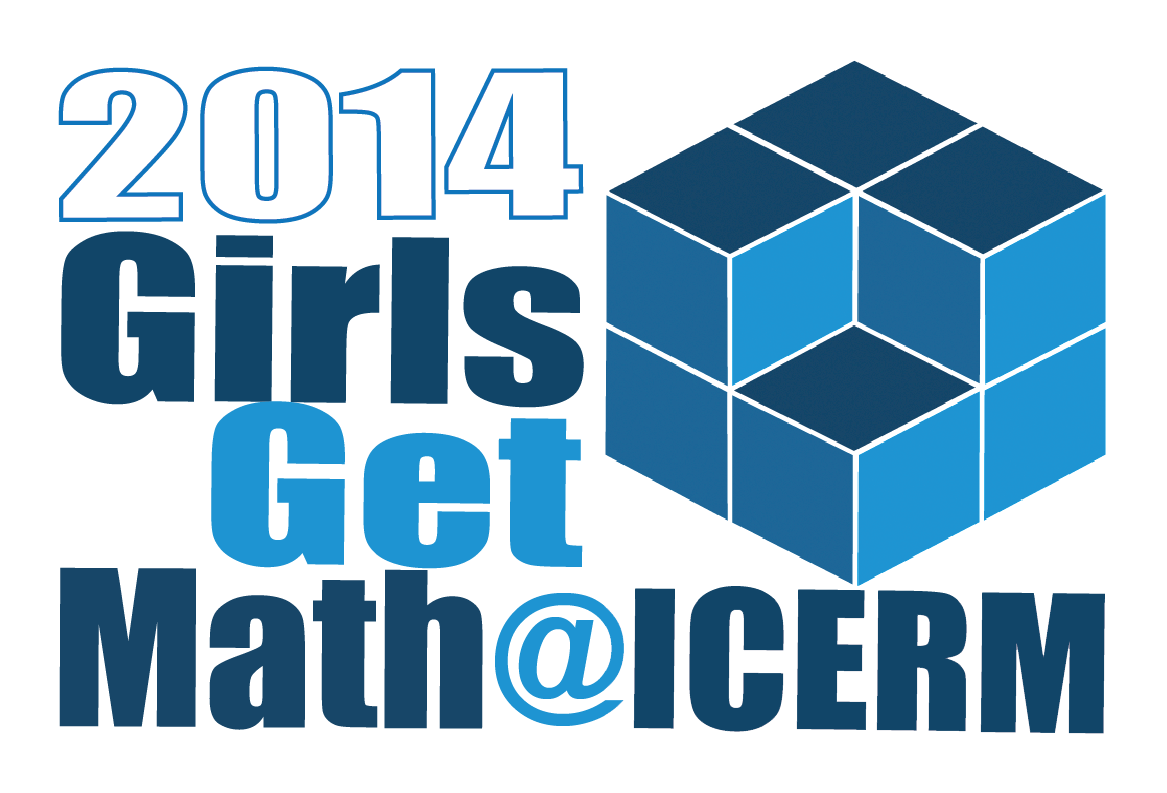GirlsGetMath
- Is a five-day non-residential program open to 20-25 high schoolers, regardless of gender, who will be rising 10th or 11th-grade students at the time of the program
- Occurs at Brown University’s Institute for Computational and Experimental Research in Mathematics (ICERM)
- Seeks to motivate young adults to consider careers in mathematics, computation, and quantitative fields
- Provides an affirming environment that encourages participants to explore, and invites them to excel in, the mathematical sciences
- Incorporates interactive lectures, hands-on activities, and games that help bring home mathematical concepts in fun ways
- Has daily computer-labs to introduce participants to programming skills and coding
- Covers topics like cryptography, the mathematics of voting, image processing, fractals, prime numbers and factoring
- Is taught by accomplished professors, undergraduate and graduate teaching assistants, all serving as career models and scientific mentors
- GirlsGetMath@ICERM is currently led by Amalia Culiuc, lecturer in Applied Mathematics at Brown University.
Expanding the Program Nationally
ICERM's long-term goal has been to replicate GirlsGetMath on a national basis, and started by making its interactive and engaging educational modules now available on-line by request in 2016 (see Curriculum below).
Thanks to funding from the JetBlue Foundation in 2018, ICERM developed a train-the-trainer opportunity for nine faculty who were interested in replicating a GirlsGetMath program at their home institutions. The observational training occurred during ICERM's summer 2019 GirlsGetMath program. The train-the-trainer participants were then given the opportunity to apply for start-up seed funds to run their own programs. Six out of the nine trainees applied for the four available seed grants. Through the seed grants, GirlsGetMath programs were held at Boston University, Colorado State University, Stonehill College, the University of Central Oklahoma, and the University of Michigan - Dearborn. We are grateful to the JetBlue Foundation for their flexibility.
How You Can Make a Difference
Donations and gifts to the GirlsGetMath@ICERM program can come in many forms. A gift as small as $100 will cover the cost of one participant's experience; a $50,000 donation will seed the planned national franchise of this program. Gifts and donations can be named or anonymous.
- $50 provides games and art supplies for students
- $100 funds a scholarship for one student to attend the program
- $500 funds two Alumni Counselors
- $25,000 sponsors one summer GirlsGetMath program
- $50,000 provides seed funding for a GirlsGetMath franchise
All gifts to GirlsGetMath@ICERM program are tax-deductible to the extent allowed by federal law under the umbrella of Brown University's status as a 501(c)(3) charitable institution.
Donate online at https://gifts.brown.edu. Click on "+ Add more gifts" to earmark your funds for GirlsGetMath.
Comments & Feedback about GirlsGetMath
Recent Press and Write-Ups about GirlsGetMath
In 2022, Brown University released an article featuring reflections from GirlsGetMath alumnae and faculty leaders.
Brown University's student newspaper, the Brown Daily Herald featured an article about the 2018 GirlsGetMath@ICERM program.
GirlsGetMath organizer Katharine Ott wrote a guest post on the American Mathematical Society blog about the 2017 GirlsGetMath program. Visit the AMS blog to learn more about the event.
GGM 2023 Alumnae Feedback
“The highlight of the program wasn't really just a part of it, but I really enjoyed making new friends and solving problems with them. I think the saying that hardship bonds people together really is true; all the time spent laboring over math problems really did bring us closer together, and I had a lot of fun just nerding out and discussing math with them!”
“I really liked the collaborative activities we had and also playing the matching game set which was really fun to play. I liked these two the most because it was really fun getting to meet all the girls that were there, and also set was a game I never would have played without ICERM so thank you.”
“The topic that I liked the most was matrices and vectors. I had always seen these two things on state tests and I never had any idea what to do with them. It was very cathartic to be able to understand the topic.”
“Both faculty leaders and TA’s were extremely helpful with the content and things outside of math. They were lovely people and made me feel welcome.”
“Learning about matrices was very interesting. I hadn't ever done anything like it, so I found it to be very interesting.”
“My favorite topic was probably either epidemic spread with matrices or the cryptography talk. I enjoyed how with the epidemic spread, we were able to apply simple math concepts like matrices to real-life problems. I used to strongly dislike matrices until that class, but doing those activities changed my mind completely. I also really enjoyed the problem-solving aspect of cryptography, and I enjoyed the process of figuring out ciphers and decoding messages.”
“I liked all of the things we did with Matlab, but especially when we used it to dissect and manipulate black-and-white and colored photographs.”
“I found the computer lab very informative because I was able to use resources that I never used before and I was also able to put math into things that I do in my daily life. Like when we created a filter for our pictures I found it really cool, also I liked how we were able to customize those pictures to how we wanted them.”
GGM 2023 Parent Feedback
“My student benefited by being exposed to a wide variety of mathematical applications in society and possible study and career paths. She had a lot of fun and was very inspired by the course content!”
“My daughter has always had a strong intellect and a preference for academics and reading over everything else. Finding and building relationships with like-minded kids isn’t always easy at this age and having a program like this that builds connections across schools is quite valuable. It also minimizes social stigma that I observe, particularly important for girls.”
“It was beneficial for my daughter to be in a setting with (primarily) other girls and women with the same interests as hers. She had some exposure to various tools and methods she wouldn't get in high school and was able to build confidence in a collegiate setting.”
“Our daughter was able to see how her love of math translated into different workflows and certain careers. She was able to connect with other girls that share her love of math and also was challenged to do math work in a new environment.”
“She was quite enthusiastic about the math software she was introduced to and has taken her own initiative to download and play with the software independently. The themes were quite helpful as well for providing context for how maths can be applied.”
“It was great for her on so many levels...to be in a high-level academic setting, surrounded by girls her own age doing math steeped in a culture of achievement was really priceless.”
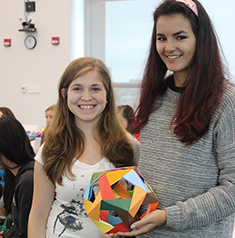
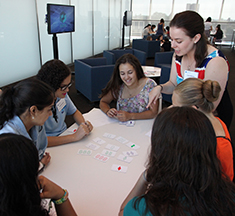
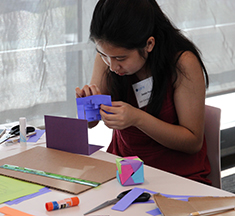
GirlsGetMath Past Programs
Curriculum
GirlsGetMath Curriculum Overview
ICERM makes modules of its GirlsGetMath curriculum available to high school STEM teachers looking for challenging material for their students, and to college or university faculty members interested in replicating a GirlsGetMath program at their institutions (see sample GirlsGetMath program schedule). These curriculum modules have been developed and vetted over time at the GirlsGetMath@ICERM program (see a summary of the available curriculum modules).
GirlsGetMath Video Module Overview
The GirlsGetMath faculty leaders have developed a small selection of online modules related to the GirlsGetMath curriculum. They consist of the following videos that interested students can complete on their own or with a teacher's guidance.
Lab: An Introduction to vectors and matrices in Octave
In this lab you will learn how to perform matrix computations in Octave, a free numerical software that uses a language compatible with MATLAB. To perform the operations below, point your web browser to octave-online.net. For this entire lab, you will only need to enter lines of code into the Octave Command Prompt. No sign-in is necessary.
Materials and Resources
Lab: Recommendation Systems
In this lab you will work through some examples of the computations needed to create a basic recommendation system and then go on to make a recommen- dation system based on a sample of survey data. The activities below are written to be completed using Octave, which you can access at octave-online.net. To become familiar with basic matrix and vector commands in Octave, it is recommended that you complete the introductory lab before this activity.
Materials and Resources
Lab: Modular Arithmetic
This module introduces modular arithmetic, sometimes known as "clock arithmetic." The module covers basic properties of addition, multiplication, and multiplicative inverses modulo n.
Materials and Resources
Lab: Modular Arithmetic and Cryptography
In this lab we will practice modular arithmetic and encoding/decoding messages using Octave, which you can access at octave-online.net.
Materials and Resources
Acknowledgements
With appreciation to the following sources:

